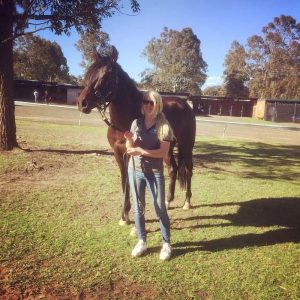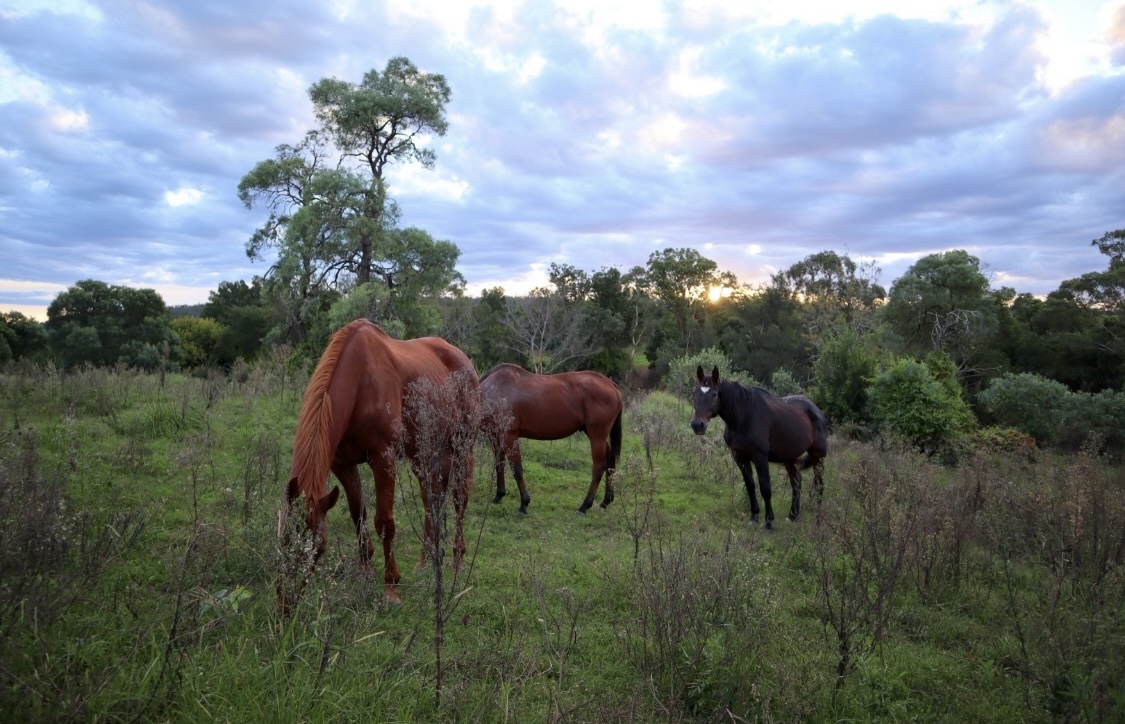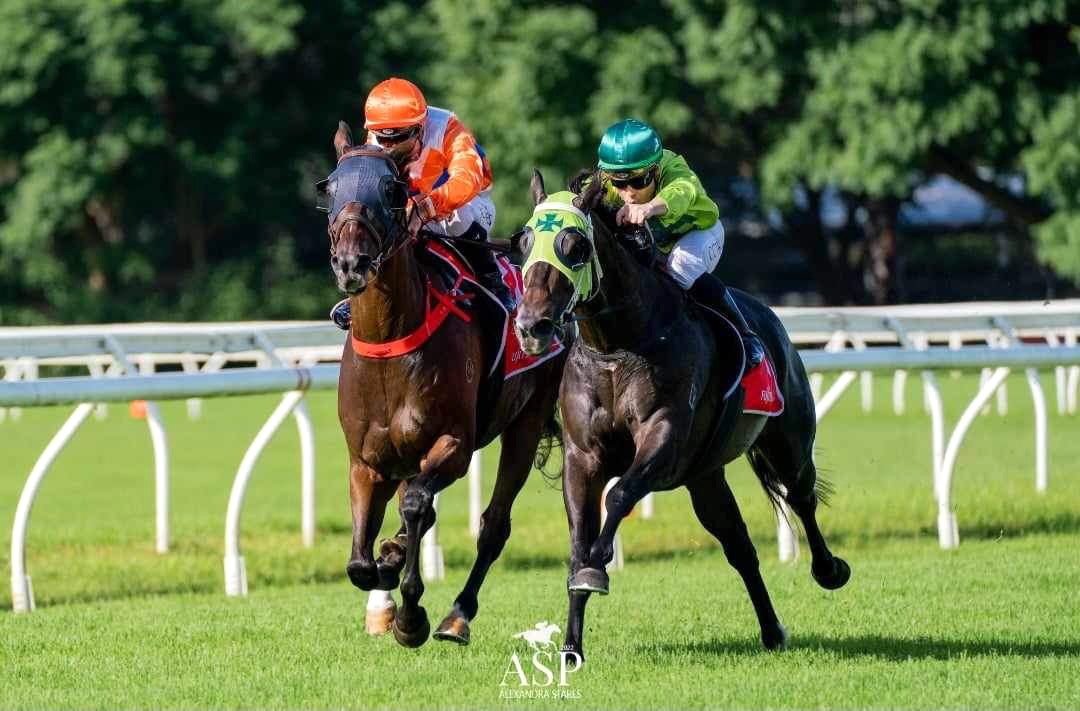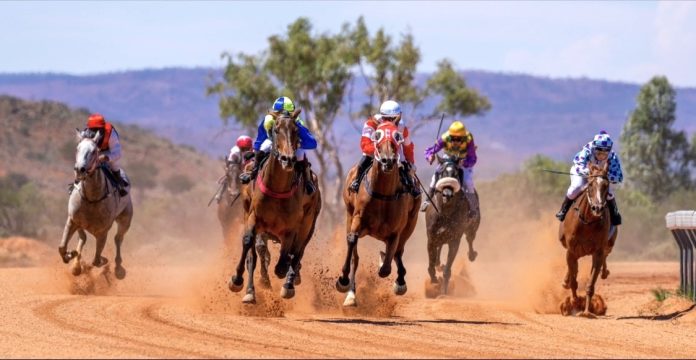The smell of freshly roasted coffee fills the air of the vibrant café in the small Australian town of Willow Tree. It was the perfect place to stop for breakfast on an early spring morning; the air still felt fresh and nature was showing off its most vibrant colours. Sitting across from me, on our way back from a university field trip, is an exchange student I barely know.
“You don’t think racing is cruel?” the green-eyed girl asked me with a hint of judgment. Her thick Irish accent made the question seem more direct than intended. I returned her gaze while sipping my oat latte and took a few seconds to contemplate how much energy I had for the response. I’d just answered the usual “What do you do for work?” question.
Although I currently don’t work due to an injury, racing entered the conversation. Countless previous conversations have given me the same negative response, often accompanied with a hint of disgust. But most people are filled with excitement, asking me numerous questions, eager to know how a person can make a living from riding horses.
“Racing can be cruel,” I answered. “There are good people in racing that truly care for their horses and there are bad people who place profit over the horse’s wellbeing. Frequently it’s the owners that are the problem because often they know little about horses.”
I paused to give her time to engage, and me the green light to start sharing information I’ve gained in the decade of working in the racing industry.

She grabbed her muffin and stared out at the street. “I just feel that using animals for entertainment is unethical.” She paused and ran her hand through her long hair to untangle a knot before continuing while giving me a challenging look. “And aren’t they slaughtered if they don’t perform?”
As I returned her gaze, I thought of the complexity of the situation. I told her I respect her stand if she doesn’t approve the use of horses for entertainment, but she must understand that these horses wouldn’t be alive if it wasn’t for racing. This is what they are bred for and most of them love to run.
In response to the slaughter comment I acknowledge that is where the road ends for most horses, not only racehorses. It’s also where the road ends for most agricultural animals. I felt her pain. I too wish that we live in a world where there are only happy endings without any animal suffering. Personally, I don’t consume meat but I, and many other vegans and vegetarians, would ride racehorses. Since the age of four I’ve ridden horses and I currently study animal science at University of Sydney, which make me confident in saying that all parts of racing cannot be classified as bad.
“Have you experienced horses being sent to the slaughter?” she asks.
“I have,” I answered, deeply wishing I could’ve said no.
Ten years ago while working in Western Australia, several horses were sent to the abattoir. Feeling angry and helpless, I cried the entire day while truly contemplating my choices. The horse trainer also struggled emotionally with the owners’ decision. We had no say. I quit shortly after and moved to Sydney where I eventually started work at Warwick Farm Racecourse. Since then, I’ve never heard of anything like that happening. It’s illegal to send racehorses directly to slaughter in NSW.
I could sense her uncertainty; she was not convinced, and who was I to persuade her? I too think that racing can be cruel. Horses should never be killed if they can’t run fast enough. She has the right to question an industry that is built on gambling and relies on performing animals, and people willing to waste money on dreams that rarely come true.
Her expression softened, but her response was silence, and I wasn’t sure if I should continue. Was it going to make me feel better if she changed her mind? If she suddenly viewed racing as good instead of an abusing industry?

Racehorses are cared for better than most horses we see grazing in paddocks. They receive top level veterinary care, physiotherapy, acupuncture, and the most nutritious food available. Importantly, they are given regular breaks which we call ‘spells’ where they spend several weeks, if not months, in large paddocks to relax in peaceful surroundings. There is a lot of money involved in racing, and it reflects on the horses.
“I’m not really that familiar with the sport,” she said. “I’ve just heard bad things and I also went once and thought it was awful.” She gave me an innocent look.
That’s the exact problem, I thought. Most people who are against the sport know very little about what goes on behind the scenes. They don’t understand how it makes hard working people feel when they are called animal abusers and their love for horses is questioned. Most in the industry agree that activism is needed to improve policies and keep the racing industry on its toes, but activists must be properly informed.
Australia has a racing culture which truly shines on the first Tuesday of every November when the iconic ‘race that stops the nation’ is held at Flemington Racecourse in Melbourne. This year the prize pool was a staggering $8,410,000. Twenty-four adrenaline-fueled jockeys competed against each other. Many were hungry for a decent meal and have been placing their body and life on the line for years, with the Melbourne Cup a culmination of their success. Athletic thoroughbreds were brought in from both national and international stables and preparations were made months in advance. Behind them are hardworking trainers, riders, stable hands, farriers, truck drivers, and the list continues.
The crowd was ecstatic, men in well-fitted suits and women dressed in luxurious dresses with outlandish hats cheered for what they believed would be the 163rd Melbourne Cup winner. The smell of alcohol, aftershave and expensive perfume filled every corner of the grandstand as voices got louder and restraint diminished.

My thoughts drifted to a more pressing matter, and I asked if she knew about Australia’s wild horses. She shook her head.
According to The Australian, this year’s Melbourne Cup Parade was cancelled because of increased pressure from activists. Meanwhile, The Guardian reports that the culling of wild Brumby horses in Kosciuszko National Park is set to resume. The ABC News reveals the estimated Brumby population is around 18,800 and the plan is to cull 15,800 horses before 2027. Aerial shooting is the method used to kill these horses, which during foal season is truly barbaric. Locals have spoken out to Nine News which has opposed the killing and reports that the estimated population numbers are exaggerated.
There is not much else that makes the blood of racing people boil more than the killing of Brumbies. Perhaps except from activists who spend their days leading up to the Cup protesting, standing at the entrance of the biggest racecourses in Australia with their ill-informed banners. Calling us animal abusers as we arrive with well looked after horses who have passed excessive medical checks to be there. We simply cannot understand why they are not outside parliament shouting at NSW’s environmental minister Penny Sharpe for ordering the culling of thousands of wild Brumbies. These horses truly need their voice.
Eventually, we grabbed our take away coffees and stepped out onto the sidewalk where the warm country sun met our grey faces. The energy between us was still friendly, and although she will certainly not be placing any bets on future Melbourne Cups, she is hopefully now aware that racing is not simply black or white. Nor is it the worst thing that can happen to a horse.


